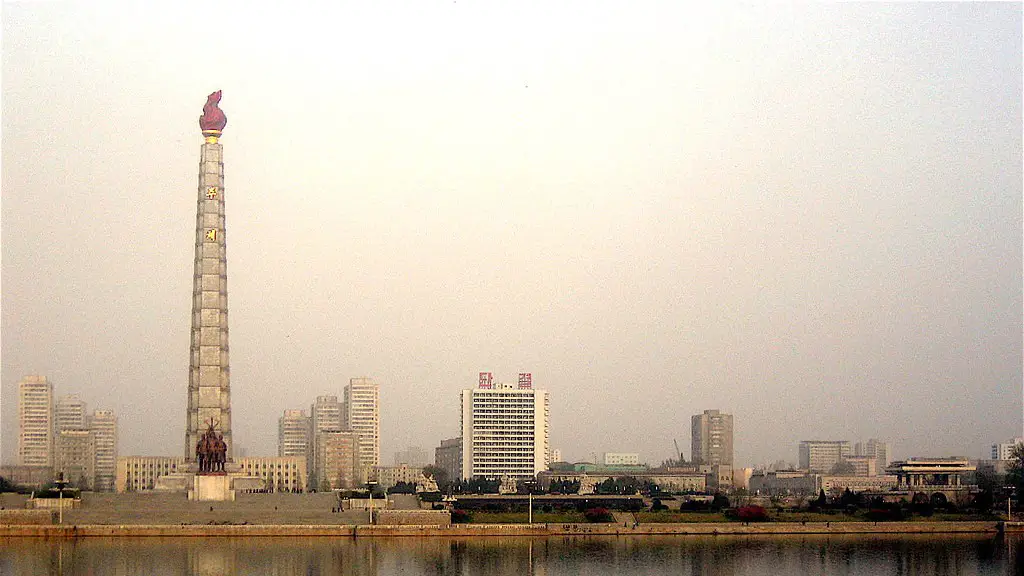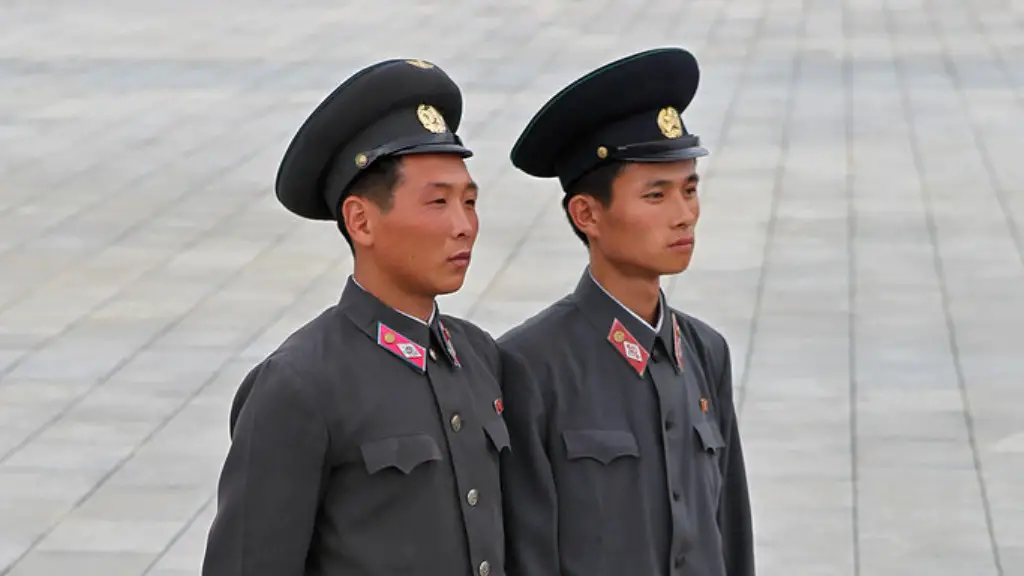Historical Background of North Korea
North Korea has been a divided nation since the aftermath of World War II. After occupying the Korean peninsula for over 35 years, Japan withdrew in 1945 and the peninsula was divided. The Soviet Union and the United States began to administer different zones of the peninsula and the two superpowers negotiated to create a unified government. That, however, never happened and North and South Korea were created in 1948. The North became a communist government, while the South claimed a democratic government. Over the years, North Korea has been marked by political, economic and social strife, isolation and sanctions from the international community.
Controversial Views Toward North Korea’s Regime
North Korea has long been a source of controversy in international politics. There is little to no information about the inner workings of the government and it is considered to be one of the most oppressive and isolated regimes in the world. North Korea has also been accused of human rights violation and has been subject to several rounds of economic sanctions from the UN since 2006. The country has also been under sanctions from the US and other countries since 2017, in response to its nuclear and ballistic missile programs. Despite the sanctions, North Korea has continued to pursue its weapons programs, leading some experts to believe that the country is not under control.
Kim Jong-Un and the North Korean Government
North Korea is ruled by Supreme Leader Kim Jong-Un, who took control of the North Korean government after the death of his father, Kim Jong-Il. Kim Jong-Un has pursued a policy of complete control, limiting free speech and harsh punishments for dissenters. The North Korean government has also maintained close ties with its neighbor, China, and has sought to impose control over its population through strict surveillance. Kim Jong-Un has also made efforts to develop North Korea’s nuclear and ballistic missile programs, in an effort to gain leverage against the US and other Western powers.
Effects of US Sanctions on North Korea
The US has long imposed economic and diplomatic sanctions on North Korea in an effort to deter its development of nuclear weapons. Sanctions have included banning the import of North Korean goods, restrictions on North Korean travel, and prohibiting US citizens from doing business with North Korean entities. Furthermore, the US has increased sanctions on North Korea since 2017, leading to accusations from the North Korean government of US economic aggressive tactics. Despite the sanctions, the US asserts that North Korea is not under control, citing its refusal to halt its nuclear and ballistic missile programs..
Observations of North Korean Control
Many experts believe that North Korea is not under control and that it is in fact striving for more freedom and autonomy. In an address to the UN General Assembly in 2017, North Korean Foreign Minister Ri Yong-Ho argued that North Korea is “a fully autonomous state and is in full control of its domestic and foreign affairs.” This assessment is supported by North Korea’s pursuit of nuclear weapons and its continued development of ballistic missiles. In addition, it is believed that North Korea is using nuclear and ballistic missiles as a way to gain leverage against the US and other Western powers. As a result, it is difficult to determine whether North Korea is under control or not.
Analysis of Foreign Relations with North Korea
North Korea has engaged in a number of diplomatic endeavors in recent years, despite its world-wide isolation. It has held summits with the US and South Korea, and held talks with Russia and China. In spite of these efforts, the US and other western countries have maintained a policy of containment when dealing with North Korea. These efforts have yet to translate into any kind of positive change in North Korean policy or behavior, leading same experts to suggest that North Korea is not under control.
Potential Solutions to the North Korean Crisis
Given the current situation on the Korean peninsula, finding a solution to the North Korean crisis is no easy task. One of the main proposals is that the US should engage in direct talks with North Korea, in order to come to an agreement on its nuclear and ballistic missile programs. Another potential solution is for the US and other Western countries to ease economic and diplomatic sanctions on North Korea, which could lead to more open relations with the country. However, all of these solutions depend on North Korea’s willingness to participate in an open dialogue and to be willing to negotiate in good faith.
Examining North Korea’s Domestic Policies
In order to gauge whether North Korea is under control, one must investigate the regime’s internal policies. Domestic policies in North Korea are strictly controlled and enforced by the government. These policies include limiting freedom of speech, restricting access to information, and punishing anyone who dares challenge the regime. North Koreans are also subject to strict surveillance and censorship, as the government seeks to maintain complete control over its population. Furthermore, human rights violations and poverty are rampant in the country, leading many to question whether North Korea is truly under control.
Investigation of North Korean Authority
The leader of North Korea is the ultimate authority and his word is law. However, recent reports suggest that Kim Jong-Un’s authority is waning as he struggles to maintain control over various factions within the regime. Furthermore, there are reports that Kim Jong-Un is facing criticism from within the regime and is viewed with distrust and suspicion by some of his close associates. This could suggest that North Korea is not as much under control as its leader would like us to believe.
Final Thoughts on North Korea
It is difficult to determine whether North Korea is under control. There is no doubt that the regime has a strict and oppressive hold over its population, which has led to human rights violations and poverty. The regime’s pursuit of nuclear and ballistic missile programs, combined with its refusal to halt them, is also a source of contention for many. However, it is also true that the North Korean government has engaged in diplomatic initiatives and engaged in talks with the US and other world powers. Ultimately, only time will tell if the North Korean government can maintain a grip on its power and if it will eventually be brought under control.


